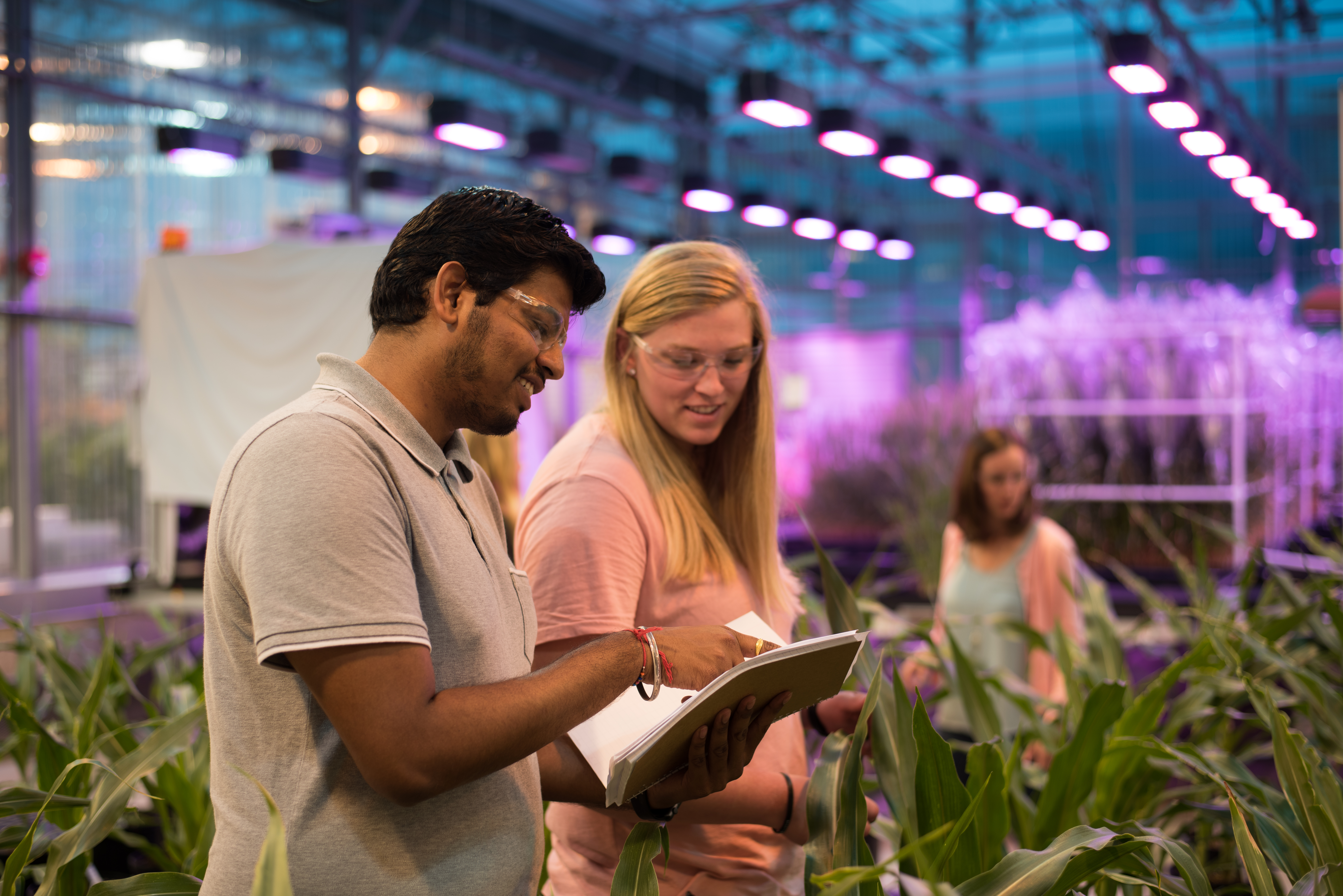Editor’s Note: Matt Crisp is cofounder and CEO of Benson Hill Biosystems, a crop genomics platform using computational biology, predictive breeding, and gene editing. Here he writes about the startup’s evolution to serve a broad range of clients across the food system.
Converting a great idea or technology into impact is the goal of every entrepreneur, and for those of us founded on technological innovation, our first priority is to validate that our stuff works and to reduce technical risk. But that is really only the beginning.
To truly capitalize on technology innovation, entrepreneurs need to apply the same creative thinking to business model innovation, especially for industries undergoing dynamic change as we see in food and agriculture today. As startups, we have the agility to evolve to meet these market demands.
Benson Hill’s journey started as a company focused on improving photosynthesis in crop plants using big data, AI and plant genomics. Photosynthesis is the most fundamental and complex biological system in a plant, and we felt that tackling this could demonstrate the viability of a strong platform. We spent our first years validating that our computational platform really worked and have since established commercial partnerships across multiple crops. Through that process, we gained some key insights about the real market potential for genomic innovation in our rapidly evolving agri-food value chain.
Genomics is a proven, powerful, untapped lever for product differentiation.
For decades, crop improvement has been largely limited to a handful of seed companies with large R&D budgets focused on a few high acre crops and almost exclusively on traits like yield that appeal to farmers. This approach was successful in improving the efficiency of those select crops, but biological challenges limited the ability to optimize multiple traits simultaneously. Breeding for yield has significantly improved the productivity of soybeans, for instance, but nutrient density of this important protein source has decreased over time.
With advances in predictive analytics and genomic tools, that kind of trade-off is no longer necessary. Companies across the value chain can design crops to benefit farmers and consumers simultaneously – better sustainability, better nutrition, better taste – regardless of the size of the crop or their R&D budget. A diverse product portfolio starts with diverse crops and ingredients, yet two-thirds of global calories are derived from just five crops. We have barely tapped into the diversity nature gave us to make better products. With modern genomic tools, we can unlock this natural resource with more precision and efficiency than ever before.
We found unmet demand to unlock this resource among companies across the value chain. That led to our evolution from a company focused on photosynthesis to a genomics platform company, where we now empower organizations of any size to access the most advanced genomics tools available to develop better products.
Empowering innovators is our core purpose. Our partners range from seed companies serving farmers, like Beck’s Hybrids, the largest independent corn seed company in the US, to downstream companies serving consumers, like Mars and AB InBev that have internal genomics capabilities for strategic crops in their supply chain. These partners understand the power of genomic innovation and how CropOS™, our platform, can accelerate their R&D program. We value our partnerships as true collaborations, but there is a large portion of the value chain that is still not being served by this model, and that’s the opportunity we are working to address now.
Serving diverse partners requires fresh thinking.
Some of the companies most interested in diversifying their portfolio to meet consumer demand are food and ingredient companies and grocery retailers, which have little or no internal crop genomic R&D capacity. These companies are used to sourcing ingredients or fresh food products directly rather than developing better crops or seeds, and their innovation programs were not built to leverage genomics as source of innovation.
The natural genetic diversity of plants is one of the most powerful sources of product differentiation for these companies. To truly empower them, we need to meet them where they are and deliver our technology through a channel that works for them. To best achieve this, we are establishing a go-to-market framework that addresses three distinct segments in the food and agriculture value chain, which best fit our partners’ supply chains.
The first segment that we are addressing is Seeds and Traits. Current and new partnerships that we are adding to our portfolio will serve seed, feed and downstream companies, delivering our technology in the form of an improved seed or crop. Our photosynthesis trait product partnership with Beck’s, our canola subsidiary Saturn Agrosciences, and other assets we will be announcing are included within this segment.
We will also be working to more directly address the Ingredients segment, which will serve consumer packaged goods companies and other food and pet food companies. Through this focus, we will deliver our technology in the form of improved ingredients and work directly with growers and manufacturers in certain strategic crops.
The Fresh segment is our third area of focus, which will serve grocery retail and food companies, delivering our technology in the form of proprietary or white label fresh produce products. To serve this segment, we will strategically partner with companies positioned to serve the demand for these differentiated crops, which we will announce in due course.
Business model innovation can fully unlock technological innovation.
The need for evolution within the value chain is real. How quickly it will happen and who will grow or wane with this change will begin to emerge this year. We believe that demarcation should be based on organizations that have the vision to innovate, not which ones have access to innovate. At Benson Hill, we want to do our part as a platform company to help make that access seamless, at least for genomic innovation.
Whether a partner accesses our technology directly to accelerate their internal R&D program or they access our technology as a product through one of the strategic segments of focus described above, we remain committed to serve all of our partners with the same degree of commitment, time, technology and resources. Nourishing people and protecting our planet requires a diverse community of innovators passionate about food production. That’s our vision and we remain steadfast in our commitment to realize it.
As an entrepreneur, I don’t think there could be a more exciting and dynamic time for our industry. It’s a privilege for us to be on this journey with forward-thinking partners as this evolution unfolds.
Learn more about Benson Hill here, https://bensonhillbio.com/.
*This article was sponsored by Benson Hill as part of our Network Partner program. Find out more here.*





